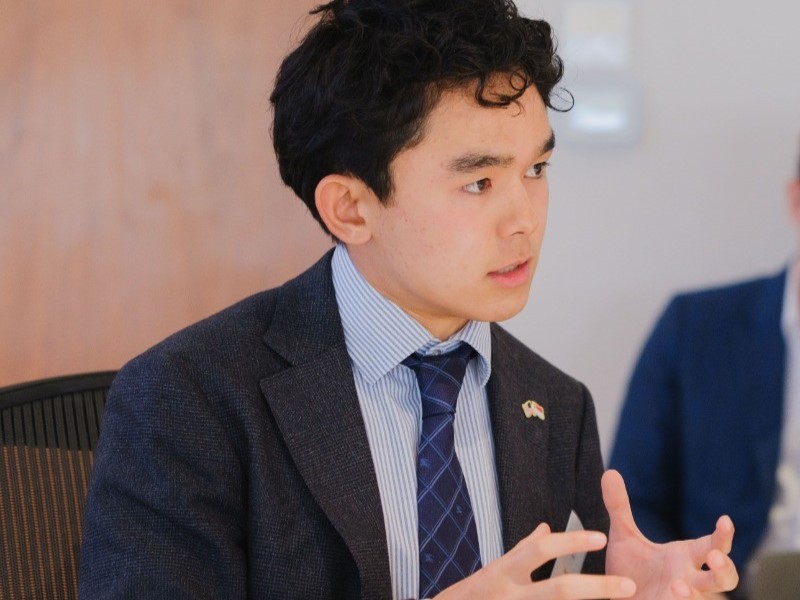Koki Mashita was awarded a Thiel Fellowship in May, shortly after co-founding a startup building technology to reduce the severity and impact of extreme weather events like tropical cyclones.
Mr Mashita and his colleagues at San Francisco-based Aeolus Labs have their sights initially on taking the wind out of tropical cyclones, to save lives and reduce damage. They are working on tech that can reduce the scale of a cyclone, and influence if or where that cyclone may make landfall.
But the company’s ambitions are planet-scale. It wants to influence climate systems, what it calls “planetary weather defence”.
A twenty-year-old from Japan, Mr Mashita founded his first company at age 10 (building to revenues), before convincing his parents to allow him to attend boarding school in the US when he was 13. He stayed.
Apart from a stint during COVID, he has lived out of home ever since. At the start of the year, he was a computer science student at the University of California Berkeley before deciding to move into StartupLand full-time.
In this episode of the Commercial Disco, Koki Mashita talks about what it might take to stop a tropical cyclone from wreaking its havoc – and also what it takes to pitch for Thiel Fellowship.
The Thiel Fellowship was certainly helpful. Founded by startup luminary and venture capital giant Peter Thiel, the Thiel Fellowship awards a $200,000 grant to ambitious young people who are building something, and opens its heavyweight networks to them as backup.
Previous Thiel Fellows include Ethereum co-creator Vitalik Buterin, Luminar Technologies founder Austin Russell, and Dylan Field, the co-founder and CEO of Figma.
The fellowship was founded in 2011 and there are now hundreds of alumni. The Thiel program raised a few eyebrows when it started, encouraging its recipients to leave their university studies to build something.
At its core, its aim is to encourage and nurture outlandish ambition.
So what does it take to change a weather system? The ambition sounds outlandish, but it is not new. Scientists have been looking at way to reduce the impact of hurricanes and cyclones for decades.

Mr Mashita points to a theory in the 1960s that proposed detonating a nuclear device in a hurricane as a way to disrupt its power. (Thankfully this hypothesis never got a live-fire test)
Aeolus Labs says Aeolus Labs is developing a salt-based substance for dispersal into critical points of a tropical cyclone, to disrupt the chaos of the wind system.
He has been in Australia talking to research collaborators at the Australian National University and meeting with government about working together during the cyclone seasons.
The company has been working with the ANU’s head of disaster solutions at Institute for Climate, Energy and Disaster Solutions Dr Roslyn Prinsley.
Australia has some natural advantages for the researchers, with offshore cyclone activity – with tropical cyclones that don’t make landfall. This gives the researchers a perfect outdoor laboratory to conduct experiments.
The challenge so far has been a giant data and modelling problem the Aeolus has been working on. But next year, the company hopes to be conducting experiments in the field, commissioning a cargo plane retrofitted with sensors and dispersal systems.
A full production system would likely involve ten C-130 aircraft and about 10 tons of the company’s proprietary substance.
In this Commercial Disco interview, Mr Mashita describes an incredible challenge and the step-by-step data science over decades that has delivered this startup to a point where its outlandish ambition may yet become a reality.
Do you know more? Contact James Riley via Email.

